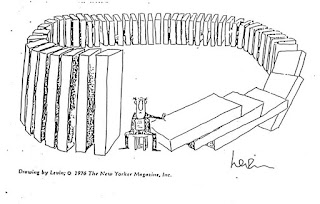KNOWING YOUR TRUE SELF by Dr Cyrus Varan
Knowledge is the source of human strength and prosperity. Knowing your true self is no exception and is a life changer. It helps a man walk with greater vision. It transforms human values, objectives, and the experience of life. Humans are unique creatures with immense capabilities. The human brain is a small mass of flesh. What gives the human brain its immense power is the key to the recognition of man’s true self. I. THE DUAL NATURE OF MAN Science focuses on the nature and response of material elements. Human senses have limited capability. They can only detect matter. The combination of the nature of science and the limitation of the s...




